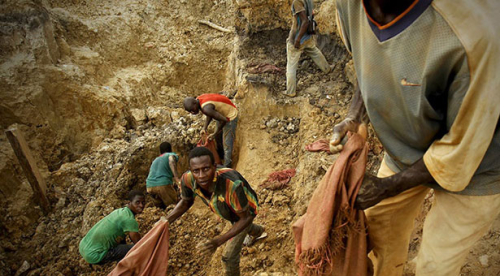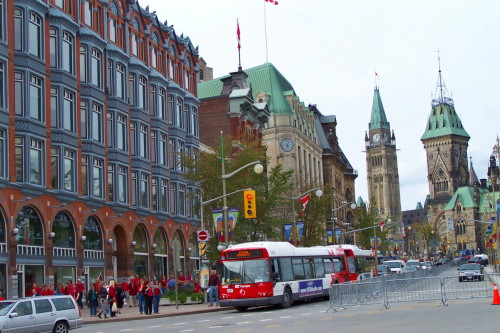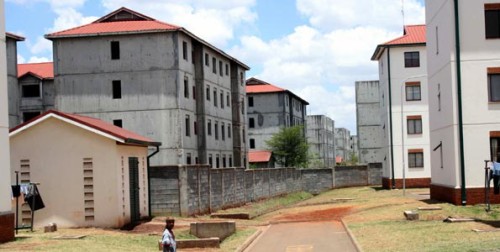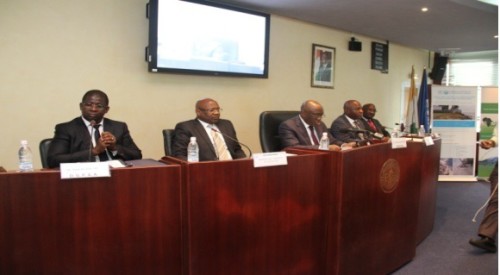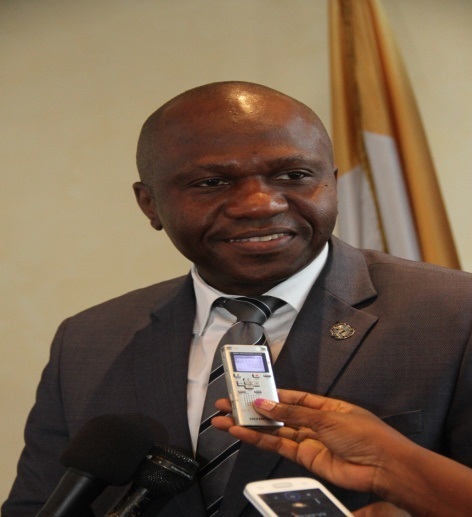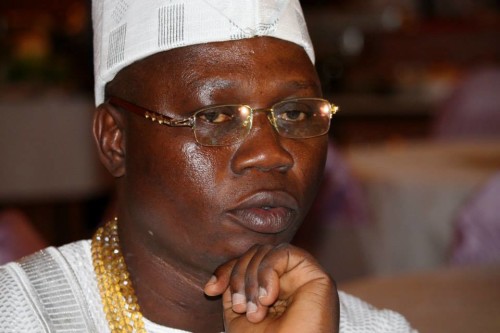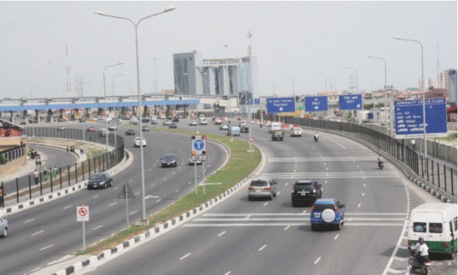The Government of Nigeria regards the challenge of climate change as inimical to its national sustainable development that must be squarely addressed. Thus, various national efforts have been put in place at all levels of governance to promote climate resilient environmental sustainability in the context of national development. However, Nigeria is yet to have a focused approach to developing and implementing a national climate change programme. Rather, the country has been benefiting from a number of mainly donor-supported climate change programmes and initiatives, particularly in the area of adaptation, in the last 10 years.
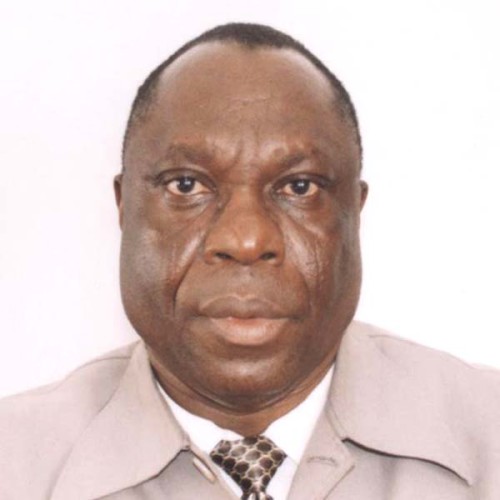
Most of these initiatives focus more on adaptation and the process of responding to climate change through programmes and initiatives that are largely donor driven. In general, the national capacity to implement a structured approach to climate change mitigation and adaptation remains weak and uncoordinated. This has made it difficult to assess the impact of the implementation of these programmes and initiatives.
In the area of climate mainstreaming for sustainable development, although the country has a National Climate Change Policy and Response Strategy that was approved by the Federal Executive Council in September 2012, there is yet to be a good implementation strategy and political commitment towards realizing the goals and objectives of the policy/strategy remains rather lukewarm.
The National Adaptation Strategy and Plan of Action for Climate Change in Nigeria (NASPA-CCN) that has been adjudged as one of the best national documents for adaptation best practices remains nothing but a document with the Department of Climate Change in the Federal Ministry of Environment. Government also approved a National Agricultural Resilience Framework in 2014 with the overall goal of improving resilience and adaptation to climate variability and change in the agricultural sector, including planning and implementation, systems for resource mobilisation, and effective project monitoring and evaluation.
The major challenge remains that there are yet to be clear and well-formulated implementation frameworks and mechanisms for these policies/action plans/frameworks. Moreover, a critical evaluation of other climate change-related policy documents indicate that issues of climate change are not properly addressed by most of them. There are no sectoral plans with climate change bias. The National Planning Commission is just in the process of designing and implementing a training programme for planners at the Federal and State levels on mainstreaming climate change for sustainable development in Nigeria.
The national institutional landscape for climate change governance in the country appears fragile and unprepared to deal with the increased risks posed by unavoidable climate change impacts. The Department of Climate Change (DCC), which was established in December 2011 in the Federal Ministry of Environment, drives the national response to climate change at the national and international levels. The DCC is the country’s Designated National Authority (DNA) for the Clean Development Mechanism, and works with a number of Ministries through the Inter-Ministerial Committee on Climate Change. Its capacity, however, remains limited, as demonstrated by its inability to submit the Second National Communication till January 2014, eleven years after submitting the first one in 2003.
In 2010, the National Assembly passed a bill to create a national Climate Change Commission, which, once established, will likely facilitate coordination and support for the multi-level and cross-sectoral climate change responses response, but the President is yet to assent to the bill. Unfortunately, there is still no timeframe as to the time that the President will assent to the CCC Bill for the Commission to take off. Such a Commission would have provided a good platform for proper climate change mainstreaming into the country’s development process, but its absence is another indication of the very limited effort being made to make climate change a priority development challenge in Nigeria. In general, the climate change governance in Nigeria needs to be further strengthened to ensure an effective mainstreaming of the climate change challenge into the national development process and action. Without good political will, appropriate legislation and strong institution, Nigeria will remain unprepared to deal with increased climate change risk as witness during the 2012 floods.
The multi-stakeholder understanding and approach that is necessary to successfully guide the process of identifying and implementing climate change adaptation and mitigation responses is largely absent. While there are many interested climate change actors (government, non-governmental and external actors, including private sector operators, research community, civil society, media and donors, among others) there is very limited interactions among them.
In general, Nigeria’s current approach to addressing the challenge of climate change in its development process has been hitherto very ad hoc. The country is yet to have national climate change programme that will address various aspects of climate change. While a number of initiatives are operating on different scales, and particularly in the area of adaptation, their implementations do not portend a good approach to a coordinated response that will have significant impact on the country. The national effort to mainstream climate change remains at best very minimal and that the country still needs to do a lot to make climate change a well integrated national issue. A good entry point for appropriate climate change mainstreaming should have been to take the implementaion plan for the National Climate Change Policy and develop a programme that will synergizes the series of proposed initiatives and activities into a comprehensive and holistic climate change programme for Nigeria, including mobilizing for a substantive financing.
Explicit financing for climate change issues and concerns from national resources remains very limited, with a general disposition towards excessive donor dependency. The result is a series of ad hoc interventions and initiatives here and there that are difficult to measure their impact on national response to climate change.
Nigeria is yet to fully undertake detailed assessment of cost estimates for national adaptation actions and mitigation programmes. However, available information from various sources in the country indicates that it will be very costly for Nigeria to adapt well to anticipatory climate changes. The incremental cost in the agriculture and water resources is estimated at US$3.06 billion per year by 2020 and about US$5.50 billion in 2050. For the water sector alone, more than US$1 billion was estimated to be a minimum requirement to enable the country adapt properly in terms of adapting to small dams alone so as to ensure the sustainable development of the country’s water resources under a changing climate. The health sector will require about US$3.06 billion in 2020. This is expected to increase to US$5.50 billion by the year 2050. Because of the poor transport conditions, the incremental cost for its adaptation will be high. The transport sector will require about US$5.33 billion and US$9.69 billion per year by 2020 and 2050 respectively.
A recent African Development Bank report estimates that the African continent needs between USD20-30billion per year over the next ten years to address climate change and between USD9-12billion annually to put Africa on the path to low-carbon growth (AfDB, 2012). In the past, however, Africa has received the lowest amounts for climate change action compared to other regions. Between 2009 and 2010, out of the approved USD2.9 billion for the continent, only USD435million was actually delivered. For Nigeria, the World Bank Economics of Adaptation estimates that total adaptation costs maybe up to USD1.2 billion per annum over a period of 2010-2015 (World Bank 2010), a third of this amount relates to the adaptation of infrastructure. It is worthy to note that properties worth more than N2.6 trillion (about US$16.6 billion) were damaged or lost to the floods that affected most parts of Nigeria in 2012. With a high probability of short recurrence intervals of such extreme weather events, Nigeria will need a lot of resources to overcome the challenge of climate change.
All in all, the above analysis indicates that effective mitigation and adaptation measures for climate change risk management and control in Nigeria requires that an appropriate and inclusive financial architecture is in place. This calls for an improved national budgetary commitment to climate change and an enhanced national capacity to enable Nigeria tap into a number of climate change funds that are available at the global level, including (i) Special Climate Change Fund (SCCF); (ii) Strategic Priority on Adaptation (SPA) under the GEF Trust Fund; and (iii) Adaptation Fund. In addition, there are Climate Investment Funds (CIF), including the Clean Technology Fund (CTF) and the Strategic Climate Fund (SCF) managed by the World Bank.
There is also the new Green Climate Fund sited in Songdo Incheon City, South Korea and managed by a Board. Access to most of these funds is constrained by the complexity of project design and implementation, and the need to comply with overwhelming administrative and financial management requirements. Because of weak national technical capacity, Nigeria has not been able to benefit significantly from these financial mechanisms.
Overall, climate change needs to be brought into the mainstream of national development policies, plans, strategies and programmes in Nigeria to make the country’s development more resilient to its impacts. Many climate change actors, including civil society organizations, academia, private sector operators, media and development partners need to be brought on board in a coordinated manner to enable the country harness the opportunities provided in effective mitigation and adaptation responses to climate change for climate resilient sustainable national development.
(People who are interested in additional technical details can read: (a) FMEnv (Federal Ministry of Environment), 2010: National Environmental, Economic and Development Study (NEEDS) for Climate Change in Nigeria. National Report Submitted to the UNFCCC.; (b) Oladipo, E. O. 2013a: Assessment of the Adaptation of the Agricultural Sector to Climate Change and Variability in Nigeria. Technical Report Submitted to CILLS; and (c) Oladipo, E. O. 2013b: An Inventory of Projects and Programmes in the Field of Climate Change, Stakeholders Involved and Level of Climate Change Mainstreaming in National Strategies and Policies in Nigeria. Technical Report Submitted to CILLS).
By Prof. Emmanuel Oladipo (Climate Change Specialist and Adjunct Professor, Department of Geography, University of Lagos, Nigeria. Email: olukayode_oladipo@yahoo.co.uk)

